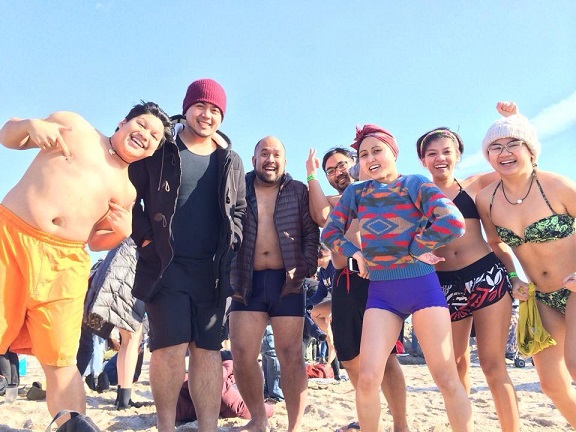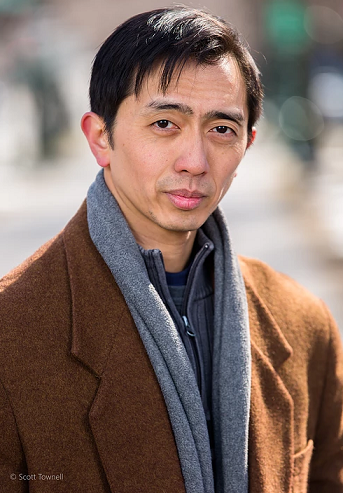Immigration Atty. Arvin Amatorio: ‘Self-deportation is complex and has significant consequences’

By Cristina DC Pastor
Bergenfield, N.J. Mayor Arvin Amatorio, also an immigration lawyer, spoke to The FilAm about the road ahead for immigration reform. He warned against “immediate self-deportation” as he urged undocumented immigrants to explore all options. Despite their significant contributions to society, he said the likes of Jose Antonio Vargas “remain vulnerable.” The interview below:
The FilAm (TF): Did you get a spike in immigration inquiries after Trump won the presidency?
Arvin Amatorio (AA): Yes, there was a spike in immigration inquiries following Trump’s election. Many immigrants, including Filipinos, were concerned about the administration’s direction on immigration enforcement and potential policy changes. This created uncertainty and a sense of urgency among individuals wanting to secure their status or explore options for themselves and their families. I’ve had inquiries that were coming from other countries, and they fear for their loved ones who are in the U.S.
TF: What does the Trump presidency mean for immigrants, Filipinos included?
AA: The Trump presidency brought significant uncertainty for immigrants, especially those lacking proper immigration documentation. For those who already have their green cards, as they are already naturalized, I found out the reaction is diverse, and many supported his threat to enforce the immigration law by deporting them.
For Filipinos, it emphasized the importance of addressing legal status and preparing for potential changes in immigration policy. Legal immigrants might encounter more rigorous vetting processes, while undocumented immigrants could face heightened enforcement measures. It also highlighted the adaptability and resourcefulness of immigrant communities.
(Ambassador Jose Manuel Romualdez told the Philippine Star there could be anywhere from 250,000 to 300,000 undocumented Filipinos currently in the U.S.)
TF: What should undocumented Filipinos do at this point? Should they heed the Ambassador’s advice to self-deport?
AA: While the Ambassador may have good intentions, I disagree with immediate self-deportation. Undocumented Filipinos should seek proper legal advice first. Self-deportation is complex and has significant consequences, and each case is unique. In some situations, deportation proceedings might actually lead to a green card, as respondents can seek relief not available in USCIS proceedings. They should explore all options before deciding.
(Romualdez told the Inquirer, “If they [Filipinos] have no path to staying [in the U.S.] legally, it’s better to leave instead of being deported; otherwise the chances of being able to come back is almost zero.”)
TF: 11 million undocumented immigrants is a big number. Is mass deportation the solution?
AA: Mass deportation would require immense resources, disrupt millions of lives, and strain relationships with immigrant communities. According to a report from American Immigration Council, it would take about $88 billion to remove just 1 Million. I’m unsure if Congress could quickly allocate this money to deport all the 11 Million, considering the cost and the potential impact it would create in many communities.
As a Mayor of a town and an immigration attorney, I talked to small business owners such as restaurants, stores, and construction companies, and these businesses rely on immigrants to perform the work that nobody wants to do. In one incident, upon discussing this issue, one joked that even the children of illegal immigrants who grew up in this country are reluctant to do these menial yet vital jobs to make our community run and to grow our economy.
Therefore, I suggest a bipartisan, constructive approach is needed involving comprehensive immigration reform, addressing border security, and a meaningful partnership amongst the neighboring countries to improve our economies and a reasonable pathway to legal status.
TF: How about deporting immigrants with criminal records? Do you think this will happen?
AA: The Trump administration did prioritize deporting immigrants with criminal records, and we saw an increase in enforcement targeting this group. During the first Trump administration, we experienced a different enforcement policy, and the government prosecuting cases in removal proceedings was less likely to exercise prosecutorial discretion. However, “criminal records” can vary widely; in some cases, individuals with minor offenses were also deported. This policy underscores the need for fair and transparent criteria in enforcement actions.
TF: Do you believe mass deportation will hurt the economy, as studies have shown that immigrants contribute to economic growth and taxes?
AA: Yes, mass deportation would likely harm the economy. Immigrants play a critical role in agriculture, healthcare, and technology industries. Removing millions of workers would disrupt businesses, reduce tax revenue, and slow economic growth. As mentioned earlier, our local restaurants and hospitality industry would like to be affected. Immigrants also contribute as consumers and entrepreneurs, driving local and national economies.
TF: Do you think immigration was a deciding factor during the elections?
AA: Immigration was certainly a pivotal issue during the elections, particularly in shaping the narratives around jobs, national security, and national identity. It was a deciding factor for some voters, influenced by campaign promises related to border walls and stricter immigration enforcement. The enormous numbers of illegal border crossings during the last two years (2 Million+ each year) coming from various countries around the world, and thousands of them ended in big cities such as New York, Chicago, Washington DC, and California cities, highlighted the vulnerability of our immigration system. President Biden issued an Executive Order to abate the problem after failing to pass the bipartisan immigration bill but was too late to reverse the narrative of President Trump about “Democrats’ failure” to enforce immigration law. The big problem was the unvetted people coming in at the southern border.
TF: What happens to DACA now?
AA: DACA faced significant challenges under the Trump administration, including program termination attempts. However, the courts intervened, maintaining protections temporarily. The future of DACA depends on legislative action to create a permanent solution for Dreamers. The Republicans now control both the House and the Senate, and I do not expect it to get better anytime soon as far as DACA is concerned. President Trump can pull plenty of surprises, and I hope he can manage one that would benefit the Dreamers, at least.
TF: Or to Jose Antonio Vargas?
AA: As an outspoken undocumented immigrant, Jose Antonio Vargas represents the broader Dreamer community. His situation underscores the need for comprehensive immigration reform. Without legislative protections, individuals like Vargas remain vulnerable despite their significant contributions to society.
TF: What is the road ahead for immigration in the next four years?
AA: The road ahead depends on the administration and its willingness to prioritize reform. A balanced approach addressing enforcement, pathways to legal status, and humanitarian considerations is critical. Advocates and immigrant communities must continue to push for policies that reflect America’s values as a nation of immigrants. I believe Republicans and Democrats can find common ground. Both parties could agree on issues like national security, technological advancement, and economic impact. Humanitarian considerations and family unification are integral to legal immigration.










